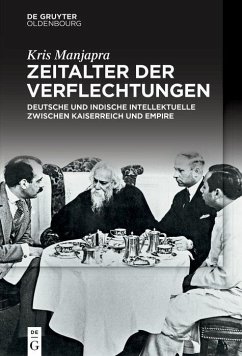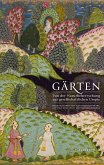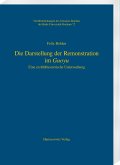Kris Manjapra ist außerordentlicher Professor für Geschichte an der Tufts University. Er hat globale, transnationale und vergleichende Geschichte studiert. Sein Fachgebiet umfasst das moderne Südasien, das moderne Deutschland und die moderne Karibik. Seine Interessen umfassen intellektuelle und soziale Geschichten des globalen Südens. Manjapras Arbeit positioniert sich auf postkoloniale und kritische Perspektiven im Bezug auf das Studium von Rasse, Kolonialismus, Diaspora und Kapitalismus. Die aktuelle Forschung von Manjapra konzentriert sich auf die globale Plantagengeschichte, die das Karibische Meer und den Indischen Ozean im neunzehnten und zwanzigsten Jahrhundert verbindet. Manjapra ist Vorsitzender der Abteilung für Rassen-, Kolonial- und Diasporastudien an der Tufts University und war Stipendiat der Alexander von Humboldt-Stiftung, des Radcliffe Institute of Advanced Study und des Wissenschaftskolleg zu Berlin. 2017 erhielt er den Lillian and Joseph Leibner Award für herausragende Leistungen in der Lehre und Beratung von Studenten bei Tufts. Zeitalter der Verflechtung wurde mit dem internationalen Merck-Tagore-Preis 2019 ausgezeichnet.
Regina M. Schneider studierte Amerikanistik, Deutsch als Fremdsprache, Spanische Linguistik und Phonetik in München und in Albuquerque. Sie übersetzt aus dem Englischen, u. a. Werke von Anita Desai, Jane Goodall und Slavoj ?i?ek sowie Biografien, u. a. von Michael Moore, Rose McGowan und dem Dalai Lama. Für ihre Arbeit erhielt sie mehrfach Stipendien und Auszeichnungen. Daneben ist sie Dozentin für deutsche Sprache an internationalen Universitäten. Regina Schneider lebt in Karlsruhe.
Dieser Download kann aus rechtlichen Gründen nur mit Rechnungsadresse in A, B, BG, CY, CZ, D, DK, EW, E, FIN, F, GR, HR, H, IRL, I, LT, L, LR, M, NL, PL, P, R, S, SLO, SK ausgeliefert werden.
Hinweis: Dieser Artikel kann nur an eine deutsche Lieferadresse ausgeliefert werden.
"Ein mutiges und faszinierendes Werk. Manjapra sprengt entschlossen und elegant den konventionellen Rahmen und schreibt eine wahrhaft globale Geschichte des intellektuellen Austauschs zwischen Deutschland und Indien. Zeitalter der Verflechtungen ist eine ambitionierte und überzeugende Darstellung der Art und Weise, wie beide Seiten mit den Strukturen und der Politik des britischen Empire verbunden waren - und durch sie sowohl begünstigt als auch eingeengt wurden." Sebastian Conrad, Freie Universität Berlin
"Ein erstklassiges Werk der globalen Geistesgeschichte, das weit über die Grenzen Europas und des britischen Empire hinausgeht. Manjapra zeigt, dass die Vorstellungskraft deutscher Denker nie auf Europa beschränkt war, und dass indische Intellektuelle eine globale Vision besaßen, die die Grenzen des Empire hinter sich ließ. Zeitalter der Verflechtungen ebnet den Weg für eine neue Art der Ideengeschichte. Sunil Amrith, Yale University
"[...] eine außerordentlich bemerkenswerte Leistung [...] Manjapra arbeitet unzählige Quellen, reichliches Archivmaterial und diverse Forschungsfelder erschöpfend in eine detaillierte und attraktive Darstellung ein. Die Sprache und der Stil sind glänzend und anregend. Und er kombiniert dazu gekonnt analytische Kategorien und Methoden aus der postkoloniale Theorie, Subaltern Studies, Entangled History und Ideengeschichte." Timothy Goering in H-Soz-u-Kult 04.07.2014
"Age of Entanglement is a landmark publication. it demonstrates both how much can be gained by 'de-centring' familiar histories and adopting new perspectives, and that the writing of a sophisticated and ambitious piece of transcultural intellectual history in the longue durée does not necessarily imply superficiality, but can be combined with sound empirical grounding and a stupendous density of documentation. There is no doubt that Kris Manjapra has written a book to be cherished." Harald Fischer-Tiné in DHIL Bulletin Vol. XXXVII (2015), 2, S. 83-89









